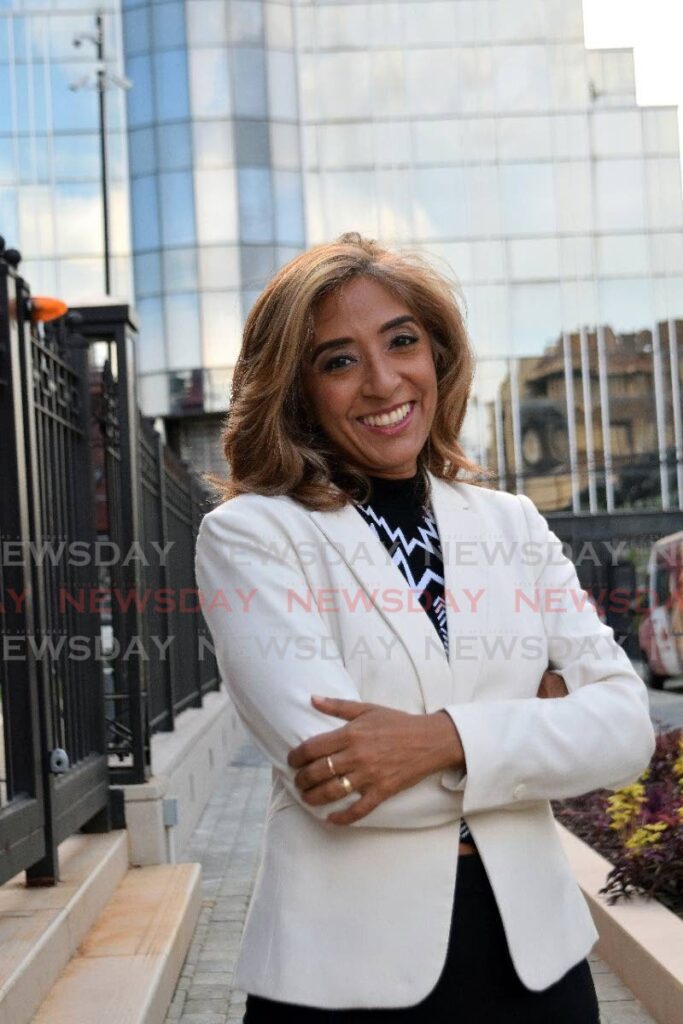Another day, another Andrea

Dr Gabrielle Jamela Hosein
ANOTHER Andrea, but without the hundreds of public marches and gatherings.
Perhaps because it is budget week and attention is elsewhere. Yet, that is precisely why I call her name today, to remind us that budgets are meant to create societies where Andreas can be safe.
Another Andrea. Another gendered victim. This time just a minor. A girl with her own story, despite their both being victims of sexual violence and lethal silencing.
Andrea Lallan, 13 years old. Killed for her truths. A girl who did what we tell children to do. We mainstreamed the message of speaking out about sexual abuse and encourage children to disclose to trusted adults in their family, community, and state.
We tell children they will be safer, they will be protected, and they can experience healing and justice if they break their silences.
We don’t tell them that they should expect adults to fail them because, for the majority, that is what we do; which is also exactly why reports of child sexual abuse are so much lower than its prevalence.
Here is the truth.
First, child sexual abuse begins in families, including by fathers. Children fear reporting, grow up believing such abuse is normal, feel powerless to stop it or stay because of dependence, love, confusion, trauma and worse alternatives.
Children who have been abandoned or neglected by a parent are at higher risk of sexual abuse, economic insecurity and lack of protection. Family bystanders also abandon children to abusive circumstances, unwilling or unable to take responsibility.
Second, there are always adults who know about single or repeated instances of abuse and do nothing. They do not call a hotline like 800-4321. They do not speak to a teacher or principal. They do not report to the police. Someone always knows those who are on sexual-offence charges, who abused others 20 years earlier and who are likely to be perpetrators.
It is true that people do not report out of fear of reprisal. However, communities also tolerate sexual abuse of children, drink with known abusers and take part in abuse themselves.
Third, adults blame children for the sexual abuse they experience. This occurs particularly with adolescent girls, who are blamed for being "hot up" or a "little baddist" or "a big woman." Adults reminisce about and repeat gang rape or "parry" and shoo-shoo about "how much man pass through," entirely erasing histories of abuse and their consequences, and the fact that teenage girls remain vulnerable children.
When such girls disclose to peers that adult men are having sex with them, portraying it as rank, adults judge such girls, not the big men, and everyone – from fellas who feel they deserve respect on the block to religiously-zealous parents of other children – participates in victim-blaming.
Laurel Williams reported in this newspaper that “residents, who requested anonymity, told Newsday the child had confided in her peers 'over the years' about abuse by 'different people.'"
Her peers knew: where were the teachers and the school?
Years of abuse had happened: how many family members and neighbours closed their eyes? Different people were repeat abusers: multiple perpetrators are now walking around Rio Claro relieved Andrea is dead so that their names won’t call.
There’s guilt everywhere and not just among those who ordered her assassination or pulled the trigger.
Perhaps there was a low chance or lack of precedence that a report of rape would be followed by an adolescent girl’s murder. Yet all the time, children are threatened with death if they tell anyone.
For young Andrea, for whatever reasons, there are no national public marches and gatherings.
For others like her, for whom the message really is to stay quiet or be killed, we also need to tell ourselves the truth.
We are failing children. We want them to disclose, but then cannot sufficiently protect them in their hundreds across the country. They are in complicit families and communities. They reach out to inadequate state systems and state homes. They seek help in a society where children are increasingly dying by the gun. They live amongst adults who pretend they don't know, and fear speaking out.
While newspapers are full of talk about spending on social development, youth and sports, and national security, it is very clear that it is not reaching poor girls and children fending for themselves in communities with rapists and killers.
This week, no one in charge should be congratulating themselves, not while 13-year-old Andrea is an example of this horrific, tragic and inconsolable truth.

Comments
"Another day, another Andrea"